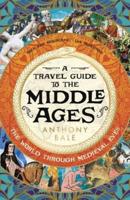Publisher's Synopsis
Bryan Fanning brings to life the battle of ideas and intellectual debates that shaped modern Ireland. The quest depicted here was one by Irish civil servants, clerics, economists, historians, poets, politicians, sociologists, and writers to understand and face up to social, economic, and political dilemmas. Though often presented as such, this was never a Manichean battle between authoritarians and liberals, conservatives and progressives, or between religiosity and secularism. The book offers a unique and nuanced insight into Irish social, cultural, economic, and political development through its focus on the debates fostered by five influential periodicals. In The Crane Bag, poets and philosophers led by Richard Kearney placed what he called the Irish mind on the couch in an effort to make sense of the Northern conflict. In The Bell, Sean O'Faolain rallied liberal writers against the national myths seemed to obscure everyday reality. In Christus Rex, Catholic conservatives pursued a modern Ireland of their choosing through dominance of the social sciences. Studies fostered a long-running engagement between liberalism and Catholicism ignored within 'standard' accounts of Irish modernisation. This saw bishops quoting F.A Hayek and economists citing papal encyclicals. It saw John Maynard Keynes argue the case for Irish economic nationalism and Patrick Lynch make the one for state-led planning and economic development. In Administration, civil servants wrestled with the new myths of Irish manifest destiny set in train by T.K Whitaker's Economic Development. Fanning's approach of allowing the original voices to breathe, to let them make their own case on their own terms, injects fresh life into the study of the Irish twentieth century. His achievement is to explain and bring together the preoccupations of the two sundered academic worlds of Irish Studies and Irish social science in a landmark study of the intellectual politics of Irish nation-building.






